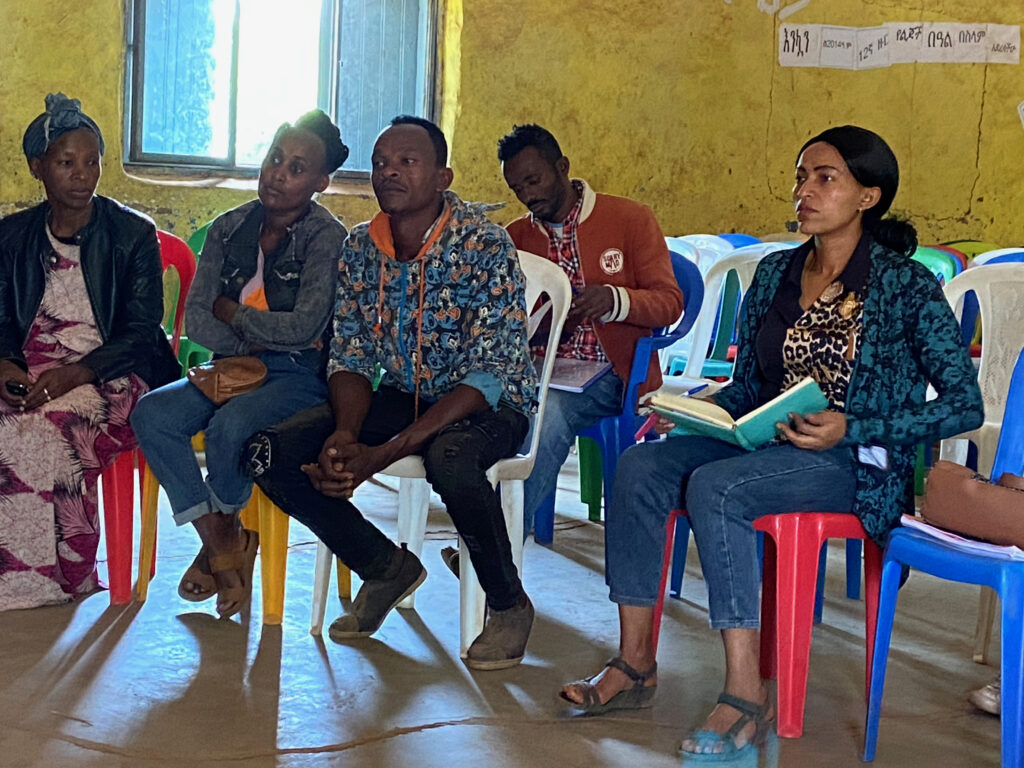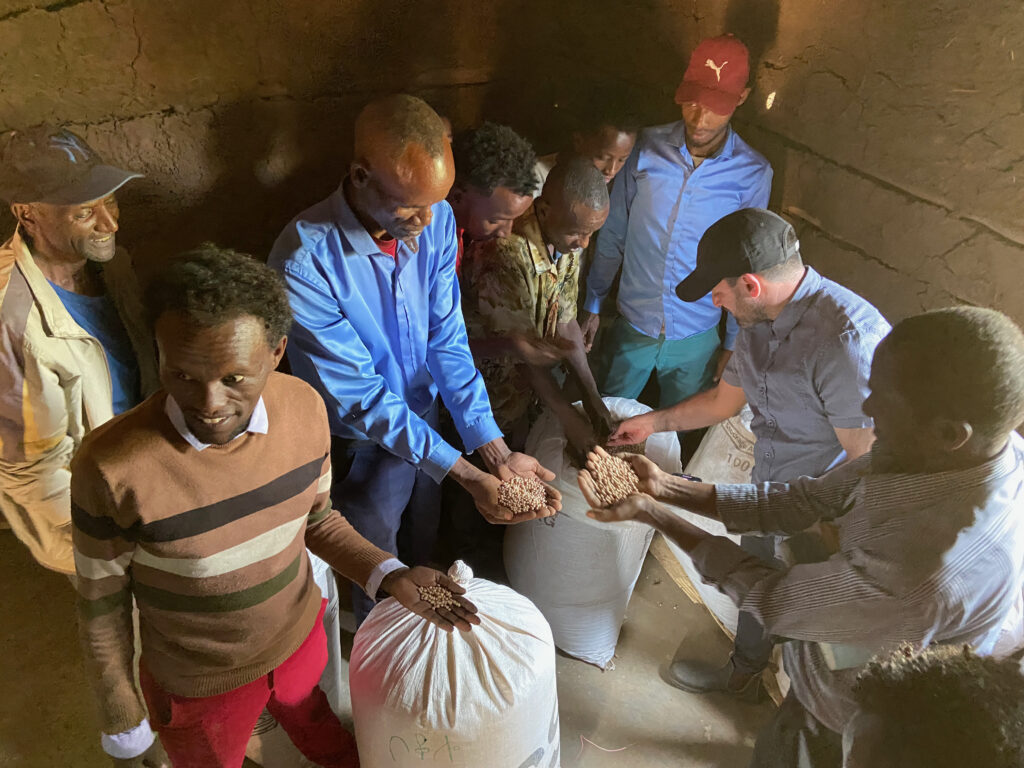This church offers food, housing, and education to its community
Bantu Church in Hobicha Valley has grown its mission to address both spiritual and practical needs through holistic community transformation.
Bantu Church in Hobicha Valley has grown its mission to address both spiritual and practical needs through holistic community transformation.
Aiming to make a greater impact on their community, Bantu Church in Hobicha Valley is expanding their mission from Sunday morning services to now engaging more intentionally with community needs. Since opening in 1967, it has been growing not only in population but in community impact. Tangible difference is seen in the transformative work that this church is outpouring into their community, and more lives are touched by this expression of God’s love.
This church recognized that there was a bigger picture in terms of needs present within the community, and engaged its leaders in Tearfund’s Church and Community Transformation (CCT) training this past year. The church’s journey towards holistic community transformation began with the realization that while they were faithful in their spiritual mission, there was a gap in addressing the pressing physical and emotional needs around them.
Pastor Matheos, who has shepherded the church for 15 years, was instrumental in guiding this new model of community development. Under his leadership, the church conducted a thorough assessment of the community’s needs and its own resources. He says, “The first task was to collect information about our church.” This social mapping was crucial in identifying effective ways to serve their neighbours and in inspiring the congregation to get involved in the mission. Next, he says “the second task would be that we get training.” Once they had determined the most immediate places of need, they used the CCT training received from Tearfund’s partner and started this holistic community transformation.


CCT is a holistic, biblically-based training that empowers churches to address both spiritual and practical needs in their communities. Like Pastor Matheos describes, “the CCT approach targets not only members, it targets the whole community.” This model of community development enables churches to move beyond their walls, using their own resources and integrating their faith in a way that engages those affected by poverty.
After the initial training session to 90 church leaders from two dozen different churches, Bantu Church mobilised its resources and congregation by focusing on leveraging what assets they already owned and the willingness of the community. They collected food and used clothing donations from within the church to give to those in need, receiving 152 clothing garments to distribute! They also had a team turning trees into lumber, charcoal and firewood to sell, totalling 70,000 Birr (about $1200 CAD). A team of young people collected donations for the poor from shops in the market square while sharing God’s Word, and a team of church members assisted with small labour jobs for money weekly. Combined, all of these efforts have made a great impact on what Bantu Church is able to accomplish in their community. They not only raised the necessary funds but helped realize the potential within the community for a change!
However, not everyone in the church was initially accepting of the new church methods. Many were hesitant about the outward-shifting focus of the church, particularly when there were many struggling who were already a part of the church. Accepting this mission-focus change was difficult for many, but after seeing an undeniable, God-inspired impact from the holistic community transformation practices, many grew excited about the work being done.
One of their major achievements through this training was the establishment of a model Conservation Agriculture (CA) farm on an acre of land behind the church. This new, sustainable farming method focuses on improving soil health and productivity through techniques such as minimal soil disturbance, maintaining ground cover, and rotating crops. Through this, soil fertility is enhanced and erosion is reduced. For example, despite a challenging drought, the farm yielded a bountiful harvest of 1,200 kg of pigeon peas! This was not only a source of food, but of hope for the lasting impact this training would have. The harvested crops were valued at 1,800 Birr per 100 kg originally, and now are worth 2,600 Birr. This tremendous accomplishment was set to be sold or distributed to those in need, whichever they discerned was the best stewardship of their resources.
The church’s impact extended far beyond agriculture. They aided in educational disparities by sponsoring five children from vulnerable families, ensuring they had access to schooling that otherwise would have been out of reach. They also addressed housing needs by building 14 homes for widows, with plans to construct two more soon. These homes provided much-needed shelter and stability to those who had none. The church regularly provided food to 10 elderly individuals who were struggling to make ends meet, and they covered medical expenses for five people, ensuring that health care was not a barrier to their well-being. They are continuing to plant trees in and around their church grounds and providing oxen to six different families as a source of food and income. Through these efforts, the work of Bantu Church is a tangible expression of God’s love for his people.
Bantu Church and the leadership team are now thoroughly intentional with what being a church truly looks like in serving the needs of their community. With ambitious goals set for the next year, Pastor Matheos is looking to open businesses to jobs to the unemployed: “We purchased land in the town up there to give service for young people and for the poor, so that they can get great jobs and do some businesses in that.” In addition, they intend to reach 16 houses built for unhoused widows, as well as plant 3050 trees. This is only a portion of the ways that Bantu Church is actively being the hands and feet of Jesus Christ, helping the needy while sharing the love of God exuberantly.
Not only that, but their church is increasing in numbers at a rapid rate due to their expansive outreach. Pastor Matheos explains a part of their next steps as a community-oriented church: “We are planning for next year to build another worship hall because the number of members is increasing in the district. A lot of people are coming!”
Church and Community Transformation has empowered this church to make a bigger impact for the Kingdom of God than they ever could have imagined, and it’s thanks to donors like you. Your generosity helps churches like Pastor Matheos’ be trained in a new method of holistic, church-based impact. Thank you!
Takes place on Zoom, on the third Thursday of each month at 8:00 pm (EST)